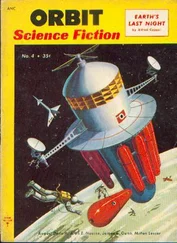Philip Dick - Time Out of Joint
Здесь есть возможность читать онлайн «Philip Dick - Time Out of Joint» весь текст электронной книги совершенно бесплатно (целиком полную версию без сокращений). В некоторых случаях можно слушать аудио, скачать через торрент в формате fb2 и присутствует краткое содержание. Жанр: Фантастика и фэнтези, на английском языке. Описание произведения, (предисловие) а так же отзывы посетителей доступны на портале библиотеки ЛибКат.
- Название:Time Out of Joint
- Автор:
- Жанр:
- Год:неизвестен
- ISBN:нет данных
- Рейтинг книги:5 / 5. Голосов: 1
-
Избранное:Добавить в избранное
- Отзывы:
-
Ваша оценка:
- 100
- 1
- 2
- 3
- 4
- 5
Time Out of Joint: краткое содержание, описание и аннотация
Предлагаем к чтению аннотацию, описание, краткое содержание или предисловие (зависит от того, что написал сам автор книги «Time Out of Joint»). Если вы не нашли необходимую информацию о книге — напишите в комментариях, мы постараемся отыскать её.
Time Out of Joint — читать онлайн бесплатно полную книгу (весь текст) целиком
Ниже представлен текст книги, разбитый по страницам. Система сохранения места последней прочитанной страницы, позволяет с удобством читать онлайн бесплатно книгу «Time Out of Joint», без необходимости каждый раз заново искать на чём Вы остановились. Поставьте закладку, и сможете в любой момент перейти на страницу, на которой закончили чтение.
Интервал:
Закладка:
Painstaking, Ragle thought. Kidney disorders always painstaking, or rather painsgiving. The poor man.
"He was a hell of a fine President," Vic said.
Ragle said, "He was an idiot."
Mrs. Keitelbein nodded.
The group of Lunar colonists declared that they would not return funds they had received and which the Federal agencies had begun billing them for. Accordingly, the FBI arrested them qua group for violation of statutes dealing with misuse of Federal funds, and, where machinery rather than funds were involved, for unauthorized possession of Federal property et cetera.
Pretext, Ragle Gumm thought.
_In the dim evening the lights of the car radio illuminated the dashboard, his knee, the knee of the girl beside him as both he and she lay back together, intwined, warm, perspiring, reaching now and then into a bag of potato chips resting on the folds of her skirt. He leaned forward once to sip beer._
_"Why would people want to live on the Moon?" the girl murmured._
_"Chronic malcontents," he said, sleepily. "Normal people don't need to. Normal people would be satisfied with life as it is." He closed his eyes and listened to the dance music on the radio._
_"Is it pretty on the Moon?" the girl asked._
_"Oh Christ, it's awful," he said. "Nothing but rock and dust."_
_The girl said, "When we get married I'd rather live down around Mexico City. Prices are high, but it's very cosmopolitan."_
On the magazine pages between Ragle Gumm's hands, the article reminded him that he was now forty-six years old. It had been a long time since he had lounged with the girl in the car, listening to dance music on the radio. That was a very sweet girl, he thought. Why isn't there a picture of her here in the article? Maybe they don't know about her. Part of my life that didn't count. Didn't affect mankind....
In February of 1994 a battle broke out at Base One, the nominal capital of the Lunar colonies. Soldiers from the nearby missile base were set upon by colonists, and a five-hour pitched encounter was fought. That night, special troop-transporting ships left Earth for Luna.
Hurray, he thought. Zeeeeep! Zeeeeep!
Within a month a full-scale war was under way.
"I see," Ragle Gumm said. He closed the magazine.
Mrs. Keitelbein said, "A civil war is the worst kind possible. Family against family. Father against son."
"The expansionists--" With difficulty, he said, "The lunatics on Earth didn't do very well."
"They fought a while, in California and New York and in a few large inland cities. But by the end of the first year the One Happy Worlders had control here on Earth." Mrs. Keitelbein smiled at him with her fixed, professional smile; she leaned back against a counter, her arms folded. "Now and then at night, lunatic partisans cut phone lines and blow up bridges. But most of those who survived are getting a dose of e.c. Concentration camps, in Nevada and Arizona."
Ragle said, "But you have the Moon."
"Oh yes," she said. "And now we're fairly self-sufficient. We have the resources, the equipment. The trained men."
"Don't they bomb you?"
She said, "Well, you see, Luna keeps one side away from the Earth."
Yes, he thought. Of course. The ideal military base. Earth did not have that advantage. Eventually, every part of Earth swam into the sights of the watchers on the Moon.
Mrs. Keitelbein said, "All our crops are grown hydro -- hydroponies, in tanks under the surface. No way they can be contaminated by fallout. And we have no atmosphere to pick up and carry the dust. The lesser gravity permits much of the dust to leave completely... it just drifts away, into space. Our installations are underground, too. Our houses and schools. And--" she smiled -- "we breathe canned air. So no bacteriological material affects us. We're completely contained. Even if there're fewer of us. Only a few thousand, in fact."
"And you've been bombing Earth," he said.
"We have an attack program. Aggressive approach. We put warheads into what used to be transports and fire them at Earth. One or two a week... plus smaller strikes, research rockets which we have in quantity. And communication and supply rockets, small stuff good for a few farmhouses or a factory. It worries them because they can never tell if it's a fullsize transport with a full-size H-warhead, or only a little fellow. It disrupts their lives."
Ragle said, "And that's what I've been predicting."
"Yes," she said.
"How well have I done?"
"Not as well as they've told you. Lowery, I mean."
"I see," he said.
"But not badly, either. We've succeeded in randomizing our pattern more or less... you get some of them, especially the full-size transports. I think we tend to fuss with them to a greater degree because we have only a limited number. We tend to unrandomize them. So you sense the pattern, you and your talent. Women's hats. What they'll be wearing next year. Occult."
"Yes," he said. "Or artistic."
"But why'd you go over to them?" Vic demanded. "They've been bombing us, killing women and children--"
"He knows why now," Mrs. Keitelbein said. "I saw it on his face as he read. He remembers."
"Yes," Ragle said. "I remember."
"Why did you go over to them?" Vic said.
"Because they're right," Ragle said. "And the isolationists are wrong."
Mrs. Keitelbein said, "That's why."
When Margo opened the front door and saw it was Bill Black outside on the dark porch, she said,
"They're not here. They're down at the store, taking a rush inventory. Something about a surprise audit."
"Can I come in anyhow?" Black said.
She let him in. He shut the door after him. "I know they're not here." He had a listless, despondent manner. "But they're not down at the store."
"That's where I saw them last," she said, not enjoying telling a lie. "And that's what they told me." Told me to say, she thought to herself.
Black said, "They got out. We picked up the driver of the truck. They let him off a hundred or so miles along the road."
"How do you know?" she said, and then she felt rage at him. An almost hysterical resentment. She did not understand, but she had a deep intuition. "You and your lasagne," she said chokingly. "Coming over here and spying, hanging around him all the time. Sending that tail-switching wife of yours over to rub up against him."
"She's not my wife," he said. "They assigned her because I had to be set up in a residential context."
Her head swam. "Does -- she know?"
"No."
"That's something," Margo said. "Now what?" she said. "You can stand there smirking because you know what it's all about."
"I'm not smirking," Black said. "I'm just thinking that at the moment I had my chance to get him back I thought to myself, That must be the Kesselmans. It's the same people. Simple mixup on the names. I wonder who conjured up that. I never was too good on names. Maybe they found that out. But with sixteen hundred names to keep track of and deal with--"
"Sixteen hundred," she said. "What do you mean?" And her intuition, then, grew. A sense of the finiteness of the world around her. The streets and houses and shops and cars and people. Sixteen hundred people, standing in the center of a stage. Surrounded by props, by furniture to sit in, kitchens to cook in, cars to drive, food to fix. And then, behind the props, the flat, painted scenery. Painted houses set farther back. Painted people. Painted streets. Sounds from speakers set in the wall. Sammy sitting alone in a classroom, the only pupil. And even the teacher not real. Only a series of tapes being played for him.
"Do we get to know what it's for?" she said.
"He knows. Ragle knows."
She said, "That's why we don't have radios."
"You'd have picked things up on a radio," Black said.
Читать дальшеИнтервал:
Закладка:
Похожие книги на «Time Out of Joint»
Представляем Вашему вниманию похожие книги на «Time Out of Joint» списком для выбора. Мы отобрали схожую по названию и смыслу литературу в надежде предоставить читателям больше вариантов отыскать новые, интересные, ещё непрочитанные произведения.
Обсуждение, отзывы о книге «Time Out of Joint» и просто собственные мнения читателей. Оставьте ваши комментарии, напишите, что Вы думаете о произведении, его смысле или главных героях. Укажите что конкретно понравилось, а что нет, и почему Вы так считаете.









